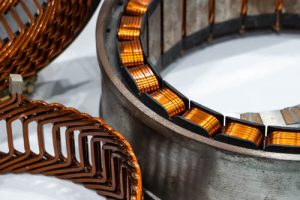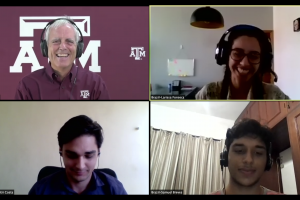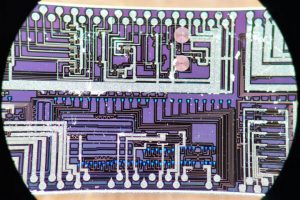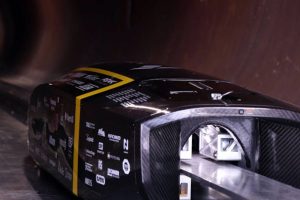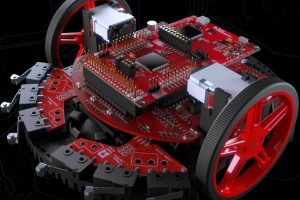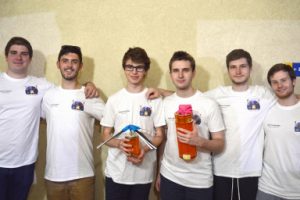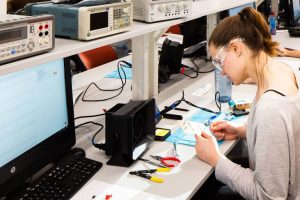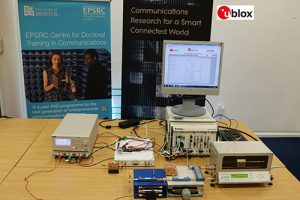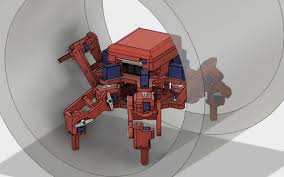The UK government has sponsored the University of Nottingham to support the development of advanced electrical machines and drives for transportation and industry. In particular, Nottingham will install coil-winding equipment and instruments to characterise magnetic materials, using a grant from UK Research and Innovation (UKRI) via the ‘Driving the Electric Revolution’ part of the Industrial Strategy Challenge Fund. “We are extremely ...
University Electronics
The latest electronics news from UK universities
Invent for the Planet 2020 winners announced
The competition for engineering students, Invent for the Planet, has announced this year’s winning projects. The competition challenges young engineers to solve real-world issues such as microplastics in oceans, sustainable airline waste management and single use plastics. Over 800 students from 40 universities in 20 countries took part in this year’s competition, run by Texas A&M University. Teams chose from ...
Bristol university makes photons for quantum computing, on CMOS
A team of physicists at the University of Bristol has used CMOS to integrate photon source suitable for “large-scale quantum photonics”, it said. “An important challenge that has limited the scaling of integrated quantum photonics has been the lack of on-chip sources able to generate high-quality single photons,” according to Bristol quantum engineer Stefano Paesani. Without low-noise photon sources, errors ...
Munich team’s winning Hyperloop vehicle
Technical University of Munich used eight electric motors with a combined power of 320kW to win SpaceX Hyperloop Pod competition in Los Angeles. Taking place on an aluminium rail within SpaceX’ mile-long evacuated tube, the 76kg carbon fibre chassis vehicle accelerated at almost 2g and reached 463km/h – before coming to a controlled halt, as the competition demands, which took 154m. ...
Texas Instruments unveils solderless robotics kit for university education
Texas Instruments has introduced an addition to its TI robotics system learning kit (TI-RSLK) family. The TI-RSLK Max is described as a low-cost robotics kit and curriculum that is simple to build, code and test. Designed for the university classroom, the solderless assembly is designed to allow students to build an embedded system in under 15 minutes. Classrooms that may ...
Turkey dominates student avionics and aeronautics competition in Texas
Turkish universities dominated the annual global ‘CanSat’ avionics and aeronautics competition, getting first, second and fifth places. Held this year in Texas, the competition has nothing to do with satellites, but it does involve rockets, payload deployment, telemetry and, this year, autogyros. In a nut shell, CanSat 2019 required students to construct a two-part payload that was launched to an altitude ...
Royal Holloway opens electronics laboratory with Tektronix products
Tektronix and Keithley Instruments have sponsored a university laboratory for London students Royal Holloway, University of London, has opened its Beatrice Shilling Building which includes teaching laboratories in partnership with Tektronix and Rapid Electronics. The building’s electronic engineering facility is home to these teaching and advanced research laboratories. Sponsor Tektronix says the laboratory enables instructors, lab managers and students to ...
Novel front-end rejects RF self-interference for LTE
U-blox and University of Bristol have developed a tunable frequency-division duplexing RF front-end that combines passive and active self-interference cancellation. With the proof-of-concept demonstrator, an electrical-balance duplexer is used to passively cancel transmitter noise in the receive band, and an active canceller is employed to suppress self-interference in the transmit band. It has been characterised in duplex configurations working between ...
End to roadworks
The universities of Sheffield, Birmingham, Leeds and Bristol have received a government grant of £26.6 million to develop micro-robots (pictured) which will run through underground pipes to find and mend cracks. “While for now we can only dream of a world without roadworks disrupting our lives, these pipe-repairing robots herald the start of technology that could make that dream a ...
Shape-shifting antennae adapt in real time to cloak and block frequencies
Radio frequency filters can change which signals they block through a range of frequencies, using an origami-based structure to change their dimensions. Researchers at the Georgia Institute of Technology say that the tunable filters can be used in antenna systems that adapt to ambient conditions in real-time for electromagnetic cloaking systems that could be reconfigured on-the-fly to reflect or absorb different frequencies. Basing the ...
 Electronics Weekly Electronics Design & Components Tech News
Electronics Weekly Electronics Design & Components Tech News
